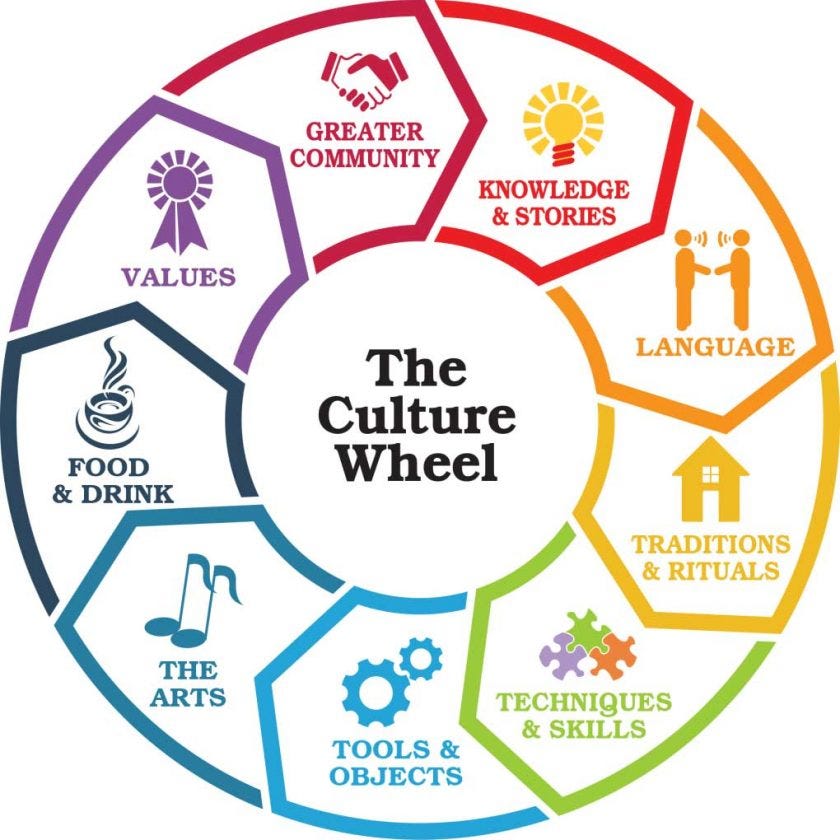My Type: Pop Culture
“Why must we be so serious about what divides us and instead trivialize what brings us together?" (TED,2013). This is the central question that would lead to the meaning of what pop culture truly is. But is this true? Yes, it is. It is a fact that is wholly accepted by the public, is funny, brings joy and entertainment, and has no restrictions on who or what could be happy while using resources that express what pop culture is. It is a wholly accepted fact that brings joy and entertainment and has no restriction regarding who or what could be happy while using resources that make them happy.
If popular culture is considered good, why is it considered dead? In the past, it served as a mechanism. However, technology has changed how we do things. It is true because social media movements on various topics have become short and, as a result, have become a topic that washes over society and withdraws quickly, thereby leaving a massive social media legacy behind. But that begs the question, “Are we told what to do rather than developing it ourselves? Or are we creating popular culture through social media every second of every single day?” (TED, 2015).
Pop culture makes life interesting because it is entertaining and used every day, and anyone can use it if they are interested, but it is not dead. Popular culture dies when we lack the conscious and subconscious ability to feel happiness and the myriad of emotions that define happiness. Politics, religion, social issues, and culture matter to us. It is also what divides us. What matters to us can’t be pop culture or what makes pop culture dead, but instead it makes you lose interest. For example, if you work all week at a job you like and continue working for another few weeks, you get bored of doing the job. The moment you begin to feel bored is the moment pop culture dies. Discovering a new interest will cause pop culture to be revived and become operational. You are interested in what you do now or later. However, if you don’t find anything of interest that you like to do, popular culture remains dead.
Culture as part of Pop culture also plays a role in what pop culture is today. Technologies available currently do not just appear. They were made based on the experiences of individuals who experienced and thought. Ask how and why. The moment the why comes to mind is when pop culture comes to life. Culture comes in because of religion. There are a few misunderstandings. They are people with similar beliefs, interests, and goals. However, in their case, they decided not to keep their ideals to themselves but instead thought, Why don’t I talk to people about my beliefs? More people could become interested in what I believe in, and then after that, how can I make it more convincing and at the same time comfortable for old and new individuals who have similar beliefs as I do to feel more comfortable? This process requires the collaboration of all of us.
In consideration of the facts, pop culture is not dead. But it is good because it helps individuals gain interest in topics that did not garner interest in the past. It is no longer the case. Information was limited, but the invention and utilization of modern technologies became widespread. The process has its advantages because it is a fact that is wholly accepted by the public, is funny, brings joy and entertainment, and has no restrictions on who or what could be happy while using resources that express what pop culture is. It is a wholly accepted fact that brings joy and entertainment and has no restriction regarding who or what could be happy while using resources that make them happy. In conclusion, pop culture is not dead, and it is just right for me.
References
-Alexander O. Philippe (2013, July 15). Why Pop Culture? [Video]. TEDx talk. Retrieved from
Why Pop Culture?: Alexandre O. Philippe at TEDxMileHigh
-Phil Miller (2015, Feb 5). Pop culture is dead [video]. TEDx talk. Retrieved from
Pop culture is dead! | Phil Miller | TEDxWoking

.jpg)
Interesting points. Need to include evidence from the Ted Talks too.
ReplyDelete